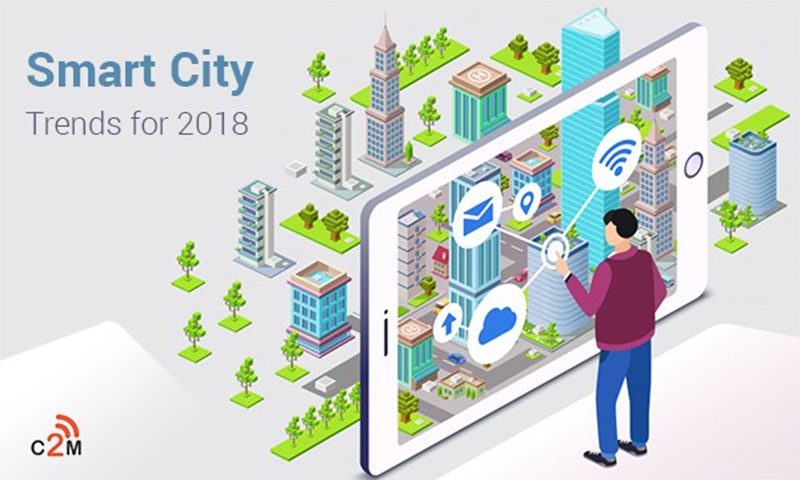Have you realized the potential for Smart City to drive substantial changes to our daily lives in 2018? Thanks to the constant evolution in technologies like Artificial Intelligence, Machine Learning, Big Data and real-time sharing, historians may just think back on this year as the nexus where innovation and government activities interconnects to produce a more vibrant network. Today, the rise of the Internet of Things (IoT) is creating new opportunities to develop smart cities around the globe.
5G technology making the smart city a reality
The worldwide wireless industry is moving towards the next influx of remote broadband availability; 5G network. This trend focuses on the part of technology retailers, civic authorities, and urban planners to make cities smarter and more connected.
5G technology guarantees to offer fast-speed, low-delay services that will permit millions of sensors. These sensors are important for the rollout of the Internet of Things (IoT) over the world. With these efforts, 5G system will give a virtual foundation for dynamic 21st-century opportunities related to education, transport, employment, financial growth, and more.
Blockchain: Improving Smart City Initiatives
Blockchain has risen as an innovative technology that enables safety in any sort of exchange that we make. Blockchain affects almost all industries – from healthcare, education, to power industry. The public sector is also no exception. Blockchain is presently an essential technology for government and public sector which has demanding requirements for secure, reliable, and authentic information exchange over different fields.
Blockchain presents a huge opportunity for smart city to make its technology more safe, proficient, and transparent for the initiatives of the Smart Cities Missions around the globe. Indeed, this technology is reclassifying the system under which data can be utilized for value-based purposes.
Advancing cities with public-private partnerships
One of the most significant components with regards to adoption of newer and more advanced technologies for smart city development is the requirement of huge investments. As a result, districts are forging advanced partnerships as a means of modernizing and renovating foundation assets which in turn is improving class of life for everyone.
Public-private partnerships are used for nearby governments to connect asset holes. PPPs are set up through manageable infrastructure; a need satisfied by a financial relationship between public organizations and private sector partners. Industry specialists believe that keeping a minimum of public control is crucial within a smart city and recommends utilizing PPPs as a community-oriented development arrangement.
Securing smart cities
Securing Smart Cities is a worldwide initiative that solves the current and upcoming cybersecurity issues of smart cities through alliance effort between organizations, governments, media outlets and other individuals over the world.
As the IoT-connected devices grow at a phenomenal rate, security becomes an undeniable challenge. Cybersecurity isn’t only a technological peril, but a citywide issue which could possibly uncover delicate data around many individuals or cause broad administration blackouts. Smart meters can be hacked for data that can be used to find users in the same way that smart wastewater systems can be hacked to release wastewater into freshwater to poison local resources.
Therefore, municipalities and other organizations are progressively looking for more secure methods to incorporate IoT technologies.





